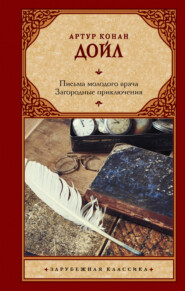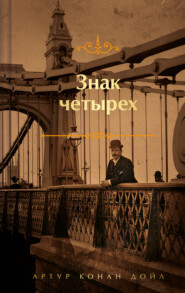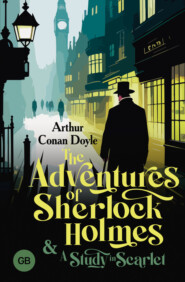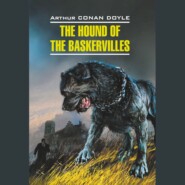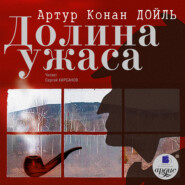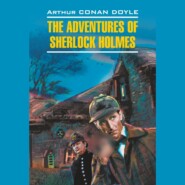По всем вопросам обращайтесь на: info@litportal.ru
(©) 2003-2024.
✖
Micah Clarke
Настройки чтения
Размер шрифта
Высота строк
Поля
‘He would fain stand upon both sides of the hedge at once,’ said King Monmouth. ‘Such a man is very like to find himself on neither side, but in the very heart of the briars. It may be as well, however, that we should move his way, so as to give him the chance of declaring himself.’
‘In any case, as your Majesty remembers,’ said Saxon, ‘we had determined to march Bristolwards and attempt the town.’
‘The works are being strengthened,’ said I, ‘and there are five thousand of the Gloucestershire train-bands assembled within. I saw the labourers at work upon the ramparts as I passed.’
‘If we gain Beaufort we shall gain the town,’ quoth Sir Stephen Timewell. ‘There are already a strong body of godly and honest folk therein, who would rejoice to see a Protestant army within their gates. Should we have to beleaguer it we may count upon some help from within.’
‘Hegel und blitzen!’ exclaimed the German soldier, with an impatience which even the presence of the King could not keep in bounds; ‘how can we talk of sieges and leaguers when we have not a breaching-piece in the army?’
‘The Lard will find us the breaching-pieces,’ cried Ferguson, in his strange, nasal voice. ‘Did the Lard no breach the too’ers o’ Jericho withoot the aid o’ gunpooder? Did the Lard no raise up the man Robert Ferguson and presairve him through five-and-thairty indictments and twa-and-twenty proclamations o’ the godless? What is there He canna do? Hosannah! Hosannah!’
‘The Doctor is right,’ said a square-faced, leather-skinned English Independent. ‘We talk too much o’ carnal means and worldly chances, without leaning upon that heavenly goodwill which should be to us as a staff on stony and broken paths. Yes, gentlemen,’ he continued, raising his voice and glancing across the table at some of the courtiers, ‘ye may sneer at words of piety, but I say that it is you and those like you who will bring down God’s anger upon this army.’
‘And I say so too,’ cried another sectary fiercely.
‘And I,’ ‘And I,’ shouted several, with Saxon, I think, among them.
‘Is it your wish, your Majesty, that we should be insulted at your very council board?’ cried one of the courtiers, springing to his feet with a flushed face. ‘How long are we to be subject to this insolence because we have the religion of a gentleman, and prefer to practise it in the privacy of our hearts rather than at the street corners with these pharisees?’
‘Speak not against God’s saints,’ cried a Puritan, in a loud stern voice. ‘There is a voice within me which tells me that it were better to strike thee dead – yea, even in the presence of the King – than to allow thee to revile those who have been born again.’
Several had sprung to their feet on either side. Hands were laid upon sword-hilts, and glances as stern and as deadly as rapier thrusts were flashing backwards and forwards; but the more neutral and reasonable members of the council succeeded in restoring peace, and in persuading the angry disputants to resume their seats.
‘How now, gentlemen?’ cried the King, his face dark with anger, when silence was at last restored. ‘Is this the extent of my authority that ye should babble and brawl as though my council-chamber were a Fleet Street pot-house? Is this your respect for my person? I tell ye that I would forfeit my just claims for ever, and return to Holland, or devote my sword to the cause of Christianity against the Turk, rather than submit to such indignity. If any man he proved to have stirred up strife amongst the soldiers or commonalty on the score of religion I shall know how to deal with him. Let each preach to his own, but let him not interfere with the flock of his neighbour. As to you, Mr. Bramwell, and you, Mr. Joyce, and you also, Sir Henry Nuttall, we shall hold ye excused from attending these meetings until ye have further notice from us. Ye may now separate, each to your quarters, and to-morrow morning we shall, with the blessing of God, start for the north to see what luck may await our enterprise in those parts.’
The King bowed as a sign that the formal meeting was over, and taking Lord Grey aside, he conversed with him anxiously in a recess. The courtiers, who numbered in their party several English and foreign gentlemen, who had come over together with some Devonshire and Somerset country squires, swaggered out of the room in a body, with much clinking of spurs and clanking of swords. The Puritans drew gravely together and followed after them, walking not with demure and downcast looks, as was their common use, but with grim faces and knitted brows, as the Jews of old may have appeared when, ‘To your tents, O Israel!’ was still ringing in their ears.
Indeed, religious dissension and sectarian heat were in the very air. Outside, on the Castle Green, the voices of preachers rose up like the drone of insects. Every waggon or barrel or chance provision case had been converted into a pulpit, each with its own orator and little knot of eager hearkeners. Here was a russet-coated Taunton volunteer in jackboots and bandolier, holding forth on the justification by works. Further on a grenadier of the militia, with blazing red coat and white cross-belt, was deep in the mystery of the Trinity. In one or two places, where the rude pulpits were too near to each other, the sermons had changed into a hot discussion between the two preachers, in which the audience took part by hums or groans, each applauding the champion whose creed was most in accordance with his own. Through this wild scene, made more striking by the ruddy flickering glare of the camp-fires, I picked my way with a weight at my heart, for I felt how vain it must be to hope for success where such division reigned, Saxon looked on, however, with glistening eyes, and rubbed his hands with satisfaction.
‘The leaven is working,’ quoth he. ‘Something will come of all this ferment.’
‘I see not what can come of it save disorder and weakness,’ I answered.
‘Good soldiers will come of it, lad,’ said he. ‘They are all sharpening themselves, each after his own fashion, on the whetstone of religion. This arguing breedeth fanatics, and fanatics are the stuff out of which conquerors are fashioned. Have you not heard how Old Noll’s army divided into Presbyterians, Independents, Ranters, Anabaptists, Fifth Monarchy men, Brownists, and a score of other sects, out of whose strife rose the finest regiments that ever formed line upon a field of battle?
“Such as do build their faith upon
The holy text of sword and gun.”
You know old Samuel’s couplet. I tell you, I would rather see them thus employed than at their drill, for all their wrangling and jangling.’
‘But how of this split in the council?’ I asked.
‘Ah, that is indeed a graver matter. All creeds may be welded together, but the Puritan and the scoffer are like oil and water. Yet the Puritan is the oil, for he will be ever atop. These courtiers do but stand for themselves, while the others are backed up by the pith and marrow of the army. It is well that we are afoot to-morrow. The King’s troops are, I hear, pouring across Salisbury Plain, but their ordnance and stores are delaying them, for they know well that they must bring all they need, since they can expect little from the goodwill of the country folk. Ah, friend Buyse, wie geht es?’
‘Ganz gut,’ said the big German, looming up before us through the darkness. ‘But, sapperment, what a cawing and croaking, like a rookery at sunset! You English are a strange people – yes, donnerwetter, a very strange people! There are no two of you who think alike upon any subject under Himmel! The Cavalier will have his gay coat and his loose word. The Puritan will cut your throat rather than give up his sad-coloured dress and his Bible. “King James!” cry some, “King Monmouth!” say the peasants. “King Jesus!” says the Fifth Monarchy man. “No King at all!” cry Master Wade and a few others who are for a Commonwealth. Since I set foot on the Helderenbergh at Amsterdam, my head hath been in a whirl with trying to understand what it is that ye desire, for before I have got to the end of one man’s tale, and begin to see a little through the finsterniss, another will come with another story, and I am in as evil a case as ever. But, my young Hercules, I am right glad to see you back in safety. I am half in fear to give you my hand now, after your recent treatment of it. I trust that you are none the worse for the danger that you have gone through.’
‘Mine eyelids are in truth a little heavy,’ I answered. ‘Save for an hour or two aboard the lugger, and about as long on a prison couch, I have not closed eye since I left the camp.’
‘We shall fall in at the second bugle call, about eight of the clock,’ said Saxon. ‘We shall leave you, therefore, that you may restore yourself after your fatigues. ‘With a parting nod the two old soldiers strode off together down the crowded Fore Street, while I made the best of my way back to the Mayor’s hospitable dwelling, where I had to repeat my story all over again to the assembled household before I was at last suffered to seek my room.
Chapter XXVII. Of the Affair near Keynsham Bridge
Monday, June 21, 1685, broke very dark and windy, with dull clouds moving heavily across the sky and a constant sputter of rain. Yet a little after daybreak Monmouth’s bugles were blowing in every quarter of the town, from Tone Bridge to Shuttern, and by the hour appointed the regiments had mustered, the roll had been called, and the vanguard was marching briskly out through the eastern gate. It went forth in the same order as it entered, our own regiment and the Taunton burghers bringing up the rear. Mayor Timewell and Saxon had the ordering of this part of the army between them, and being men who had seen much service, they drew the ordnance into a less hazardous position, and placed a strong guard of horse, a cannon’s shot in the rear, to meet any attempt of the Royal dragoons.
It was remarked on all sides that the army had improved in order and discipline during the three days’ halt, owing perchance to the example of our own unceasing drill and soldierly bearing. In numbers it had increased to nigh eight thousand, and the men were well fed and light of heart. With sturdy close-locked ranks they splashed their way through mud and puddle, with many a rough country joke and many a lusty stave from song or hymn. Sir Gervas rode at the head of his musqueteers, whose befloured tails hung limp and lank with the water dripping from them. Lockarby’s pikemen and my own company of scythesmen were mostly labourers from the country, who were hardened against all weathers, and plodded patiently along with the rain-drops glistening upon their ruddy faces. In front were the Taunton foot; behind, the lumbering train of baggage waggons, with the horse in the rear of them. So the long line wound its way over the hills.
At the summit, where the road begins to dip down upon the other side, a halt was called to enable the regiments to close up, and we looked back at the fair town which many of us were never to see again. From the dark walls and house roofs we could still mark the flapping and flutter of white kerchiefs from those whom we left behind. Reuben sat his horse beside me, with his spare shirt streaming in the wind and his great pikemen all agrin behind him, though his thoughts and his eyes were too far away to note them. As we gazed, a long thin quiver of sunshine slipped out between two cloud banks and gilded the summit of the Magdalene tower, with the Royal standard which still waved from it. The incident was hailed as a happy augury, and a great shout spread from rank to rank at the sight of it, with a waving of hats and a clattering of weapons. Then the bugles blew a fanfare, the drums struck up a point of war, Reuben thrust his shirt into his haversack, and on we marched through mud and slush, with the dreary clouds bending low over us, and buttressed by the no less dreary hills on either side. A seeker for omens might have said that the heavens were weeping over our ill-fated venture.
All day we trudged along roads which were quagmires, over our ankles in mud, until in the evening we made our way to Bridgewater, where we gained some recruits, and also some hundred pounds for our military chest, for it was a well-to-do place, with a thriving coast trade carried on down the River Parret. After a night in snug quarters we set off again in even worse weather than before. The country in these parts is a quagmire in the driest season, but the heavy rains had caused the fens to overflow, and turned them into broad lakes on either side of the road. This may have been to some degree in our favour, as shielding us from the raids of the King’s cavalry, but it made our march very slow. All day it was splashing and swashing through mud and mire, the rain-drops shining on the gun-barrels and dripping from the heavy-footed horses. Past the swollen Parret, through Eastover, by the peaceful village of Bawdrip, and over Polden Hill we made our way, until the bugles sounded a halt under the groves of Ashcot, and a rude meal was served out to the men. Then on again, through the pitiless rain, past the wooded park of Piper’s Inn, through Walton, where the floods were threatening the cottages, past the orchards of Street, and so in the dusk of the evening into the grey old town of Glastonbury, where the good folk did their best by the warmth of their welcome to atone for the bitterness of the weather.
The next morning was wet still and inclement, so the army made a short march to Wells, which is a good-sized town, well laid out, with a fine cathedral, which hath a great number of figures carved in stone and placed in niches on the outer side, like that which we saw at Salisbury. The townsfolk were strong for the Protestant cause, and the army was so well received that their victual cost little from the military chest. On this march we first began to come into touch with the Royal horse. More than once when the rain mist cleared we saw the gleam of arms upon the low hills which overlook the road, and our scouts came in with reports of strong bodies of dragoons on either flank. At one time they massed heavily upon our rear, as though planning a descent upon the baggage. Saxon, however, planted a regiment of pikes on either side, so that they broke up again and glinted off over the hills.
From Wells we marched upon the twenty-fourth to Shepton Mallet, with the ominous sabres and helmets still twinkling behind and on either side of us.
That evening we were at Keynsham Bridge, less than two leagues from Bristol as the crow flies, and some of our horse forded the river and pushed on almost to the walls.
By morning the rain clouds had at last cleared, so Reuben and I rode slowly up one of the sloping green hills which rose behind the camp, in the hope of gaining some sight of the enemy. Our men we left littered about upon the grass, trying to light fires with the damp sticks, or laying out their clothes to dry in the sunshine. A strange-looking band they were, coated and splashed with mud from head to heel, their hats all limp and draggled, their arms rusted, and their boots so worn that many walked barefoot, and others had swathed their kerchiefs round their feet. Yet their short spell of soldiering had changed them from honest-faced yokels into fierce-eyed, half-shaven, gaunt-cheeked fellows, who could carry arms or port pikes as though they had done nought else since childhood.
The plight of the officers was no better than that of the men, nor should an officer, my dears, when he is upon service, ever demean himself by partaking of any comfort which all cannot share with him. Let him lie by a soldier’s fire and eat a soldier’s fare, or let him hence, for he is a hindrance and a stumbling-block. Our clothes were pulp, our steel fronts red with rust, and our chargers as stained and splashed as though they had rolled in the mire. Our very swords and pistols were in such a plight that we could scarce draw the one or snap the other. Sir Gervas alone succeeded in keeping his attire and his person as neat and as dainty as ever. What he did in the watches of the night, and how he gained his sleep, hath ever been a mystery to me, for day after day he turned out at the bugle call, washed, scented, brushed, with wig in order, and clothes from which every speck of mud had been carefully removed. At his saddle-bow he bore with him the great flour dredger which we saw him use at Taunton, and his honest musqueteers had their heads duly dusted every morning, though in an hour their tails would be as brown as nature made them, while the flour would be trickling in little milky streams down their broad backs, or forming in cakes upon the skirts of their coats. It was a long contest between the weather and the Baronet, but our comrade proved the victor.
‘There was a time when I was called plump Reuben,’ quoth my friend, as we rode together up the winding track. ‘What with too little that is solid and too much that is liquid I am like to be skeleton Reuben ere I see Havant again. I am as full of rain-water as my father’s casks are of October. I would, Micah, that you would wring me out and hang me to dry upon one of these bushes.’
‘If we are wet, King James’s men must be wetter,’ said I, ‘for at least we have had such shelter as there was.’
‘It is poor comfort when you are starved to know that another is in the same plight. I give you my word, Micah, I took in one hole of my sword-belt on Monday, two on Tuesday, one yesterday, and one to-day. I tell you, I am thawing like an icicle in the sun.’
‘If you should chance to dwindle to nought,’ said I, laughing, ‘what account are we to give of you in Taunton? Since you have donned armour and taken to winning the hearts of fair maidens, you have outstripped us all in importance, and become a man of weight and substance.’
‘I had more substance and weight ere I began trailing over the countryside like a Hambledon packman,’ quoth he. ‘But in very truth and with all gravity, Micah, it is a strange thing to feel that the whole world for you, your hopes, your ambitions, your all, are gathered into so small a compass that a hood might cover it, and two little pattens support it. I feel as if she were my own higher self, my loftier part, and that I, should I be torn from her, would remain for ever an incomplete and half-formed being. With her, I ask nothing else. Without her, all else is nothing.’
‘But have you spoken to the old man?’ I asked. ‘Are you indeed betrothed?’
‘I have spoken to him,’ my friend answered, ‘but he was so busy in filling ammunition cases that I could not gain his attention. When I tried once more he was counting the spare pikes in the Castle armoury with a tally and an ink-horn. I told him that I had come to crave his granddaughter’s hand, on which he turned to me and asked, “which hand?” with so blank a stare that it was clear that his mind was elsewhere. On the third trial, though, the day that you did come back from Badminton, I did at last prefer my request, but he flashed out at me that this was no time for such fooleries, and he bade me wait until King Monmouth was on the throne, when I might ask him again. I warrant that he did not call such things fooleries fifty years ago, when he went a-courting himself.’
‘At least he did not refuse you,’ said I. ‘It is as good as a promise that; should the cause be successful, you shall be so too.’
‘By my faith,’ cried Reuben, ‘if a man could by his own single blade bring that about, there is none who hath so strong an interest in it as I. No, not Monmouth himself! The apprentice Derrick hath for a long time raised his eyes to his master’s daughter, and the old man was ready to have him as a son, so much was he taken by his godliness and zeal. Yet I have learned from a side-wind that he is but a debauched and low-living man, though he covers his pleasures with a mask of piety. I thought as you did think that he was at the head of the roisterers who tried to bear Mistress Ruth away, though, i’ faith, I can scarce think harshly of them, since they did me the greatest service that ever men did yet. Meanwhile I have taken occasion, ere we left Wells two nights ago, to speak to Master Derrick on the matter, and to warn him as he loved his life to plan no treachery against her.
‘And how took he this mild intimation?’ I asked.
‘As a rat takes a rat trap. Snarled out some few words of godly hatred, and so slunk away.’
‘On my life, lad,’ said I, ‘you have been having as many adventures in your own way as I in mine. But here we are upon the hill-top, with as fair an outlook as man could wish to have.’
Just beneath us ran the Avon, curving in long bends through the woodlands, with the gleam of the sun striking back from it here and there, as though a row of baby suns had been set upon a silver string. On the further side the peaceful, many-hued country, rising and falling in a swell of cornfields and orchards, swept away to break in a fringe of forest upon the distant Malverns. On our right were the green hills near Bath and on our left the rugged Mendips, with queenly Bristol crouching behind her forts, and the grey channel behind flecked with snow-white sails. At our very feet lay Keynsham Bridge, and our army spotted in dark patches over the green fields, the smoke of their fires and the babble of their voices floating up in the still summer air.
A road ran along the Somersetshire bank of the Avon, and down this two troops of our horse were advancing, with intent to establish outposts upon our eastern flank. As they jangled past in somewhat loose order, their course lay through a pine-wood, into which the road takes a sharp bend. We were gazing down at the scene when, like lightning from a cloud, a troop of the Horse Guards wheeled out into the open, and breaking from trot to canter, and from canter to gallop, dashed down in a whirlwind of blue and steel upon our unprepared squadrons. A crackle of hastily unslung carbines broke from the leading ranks, but in an instant the Guards burst through them and plunged on into the second troop. For a space the gallant rustics held their own, and the dense mass of men and horses swayed backwards and forwards, with the swirling sword-blades playing above them in flashes of angry light. Then blue coats began to break from among the russet, the fight rolled wildly back for a hundred paces, the dense throng was split asunder, and the Royal Guards came pouring through the rent, and swerved off to right and left through hedges and over ditches, stabbing and hacking at the fleeing horsemen. The whole scene, with the stamping horses, tossing manes, shouts of triumph or despair, gasping of hard-drawn breath and musical clink and clatter of steel, was to us upon the hill like some wild vision, so swiftly did it come and so swiftly go. A sharp, stern bugle-call summoned the Blues back into the road, where they formed up and trotted slowly away before fresh squadrons could come up from the camp. The sun gleamed and the river rippled as ever, and there was nothing save the long litter of men and horses to mark the course of the hell blast which had broken so suddenly upon us.






